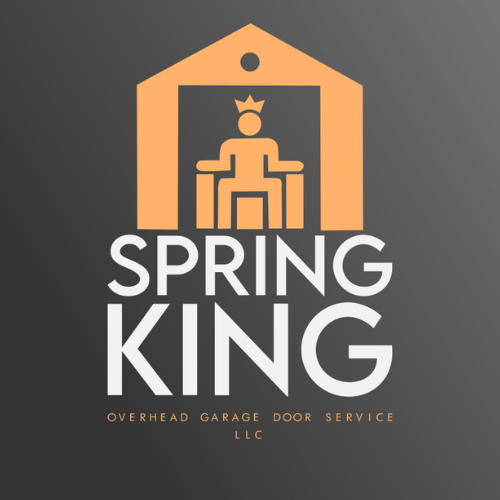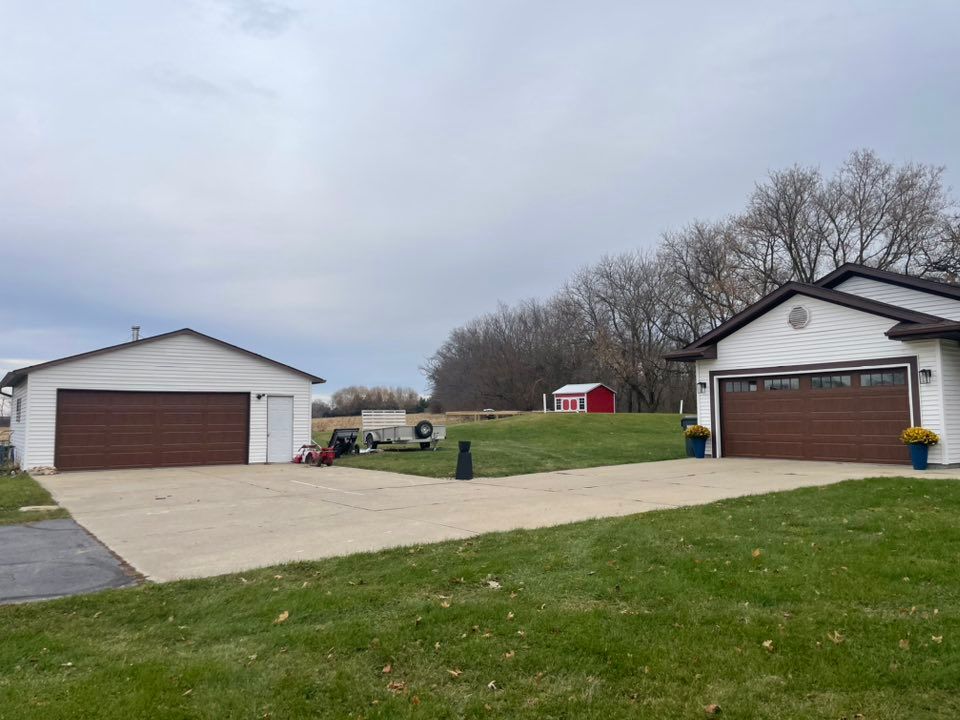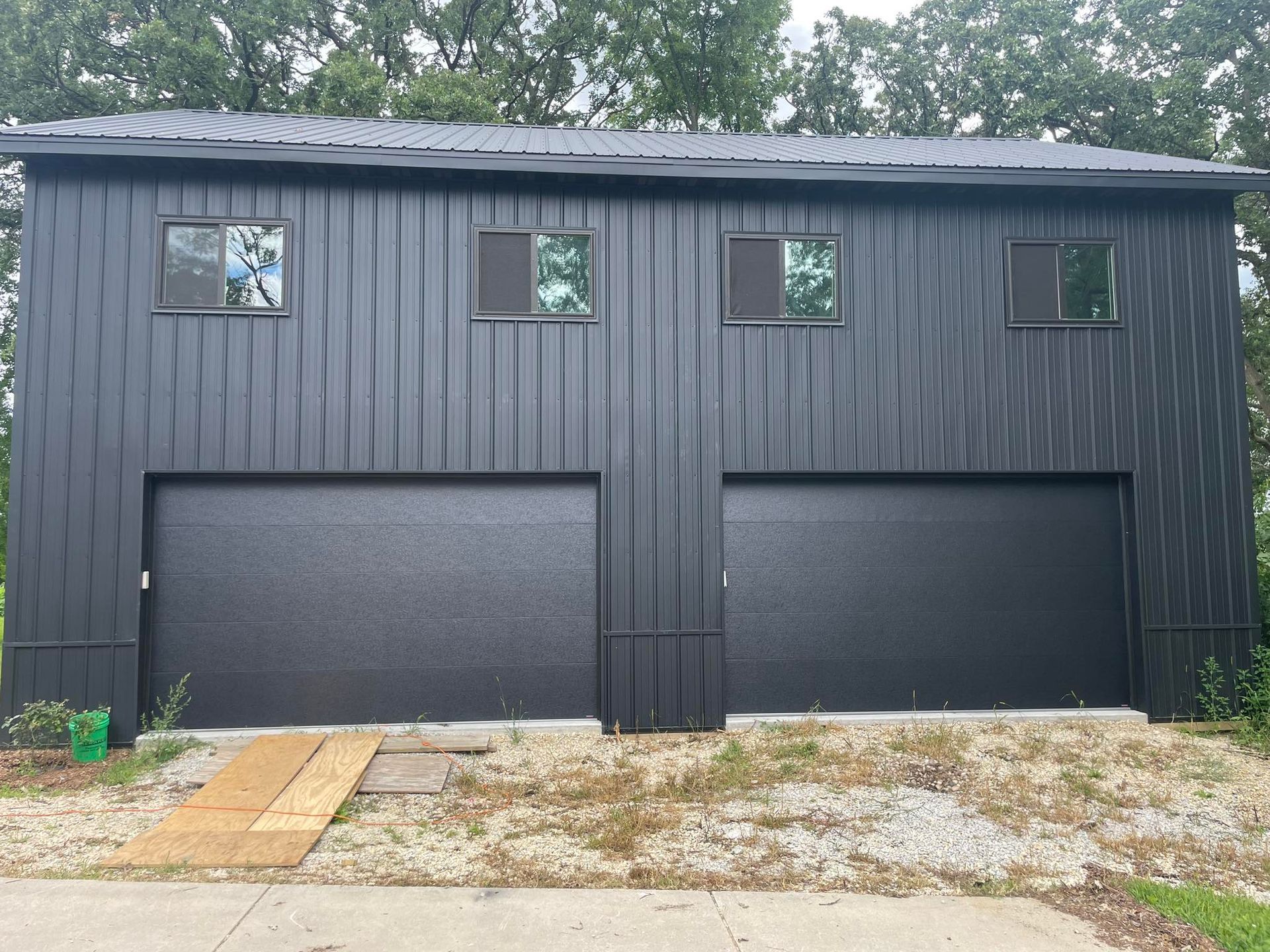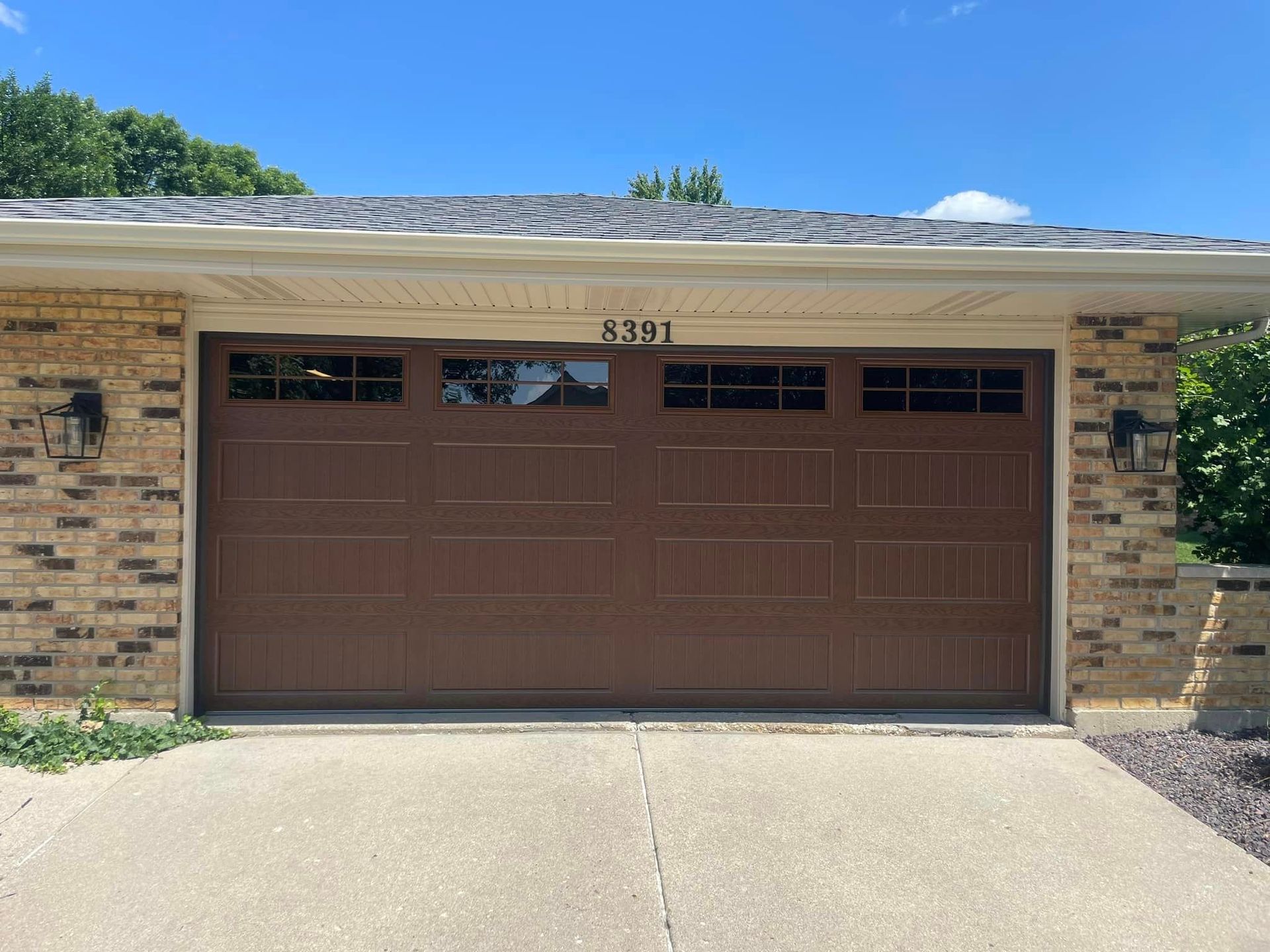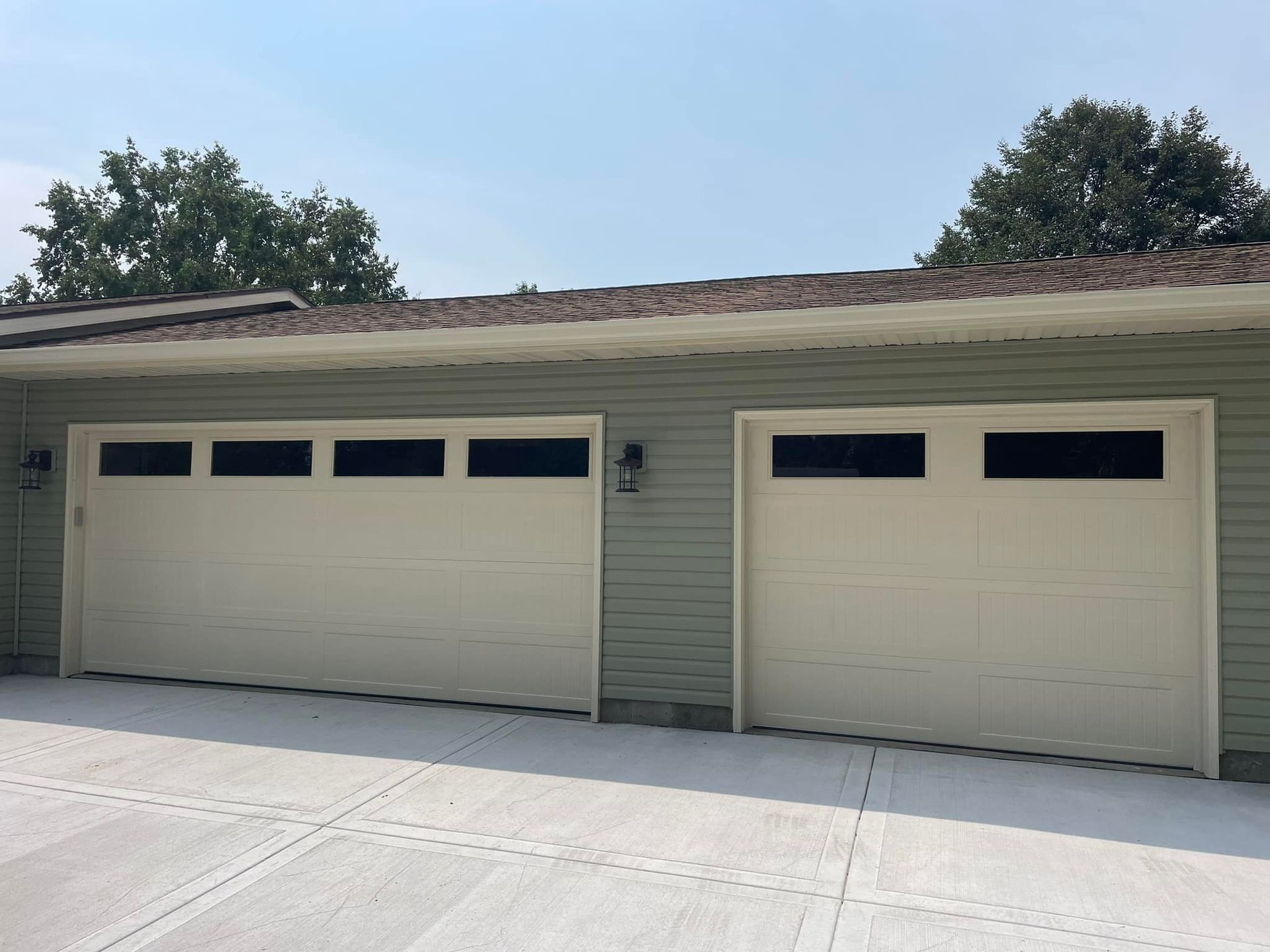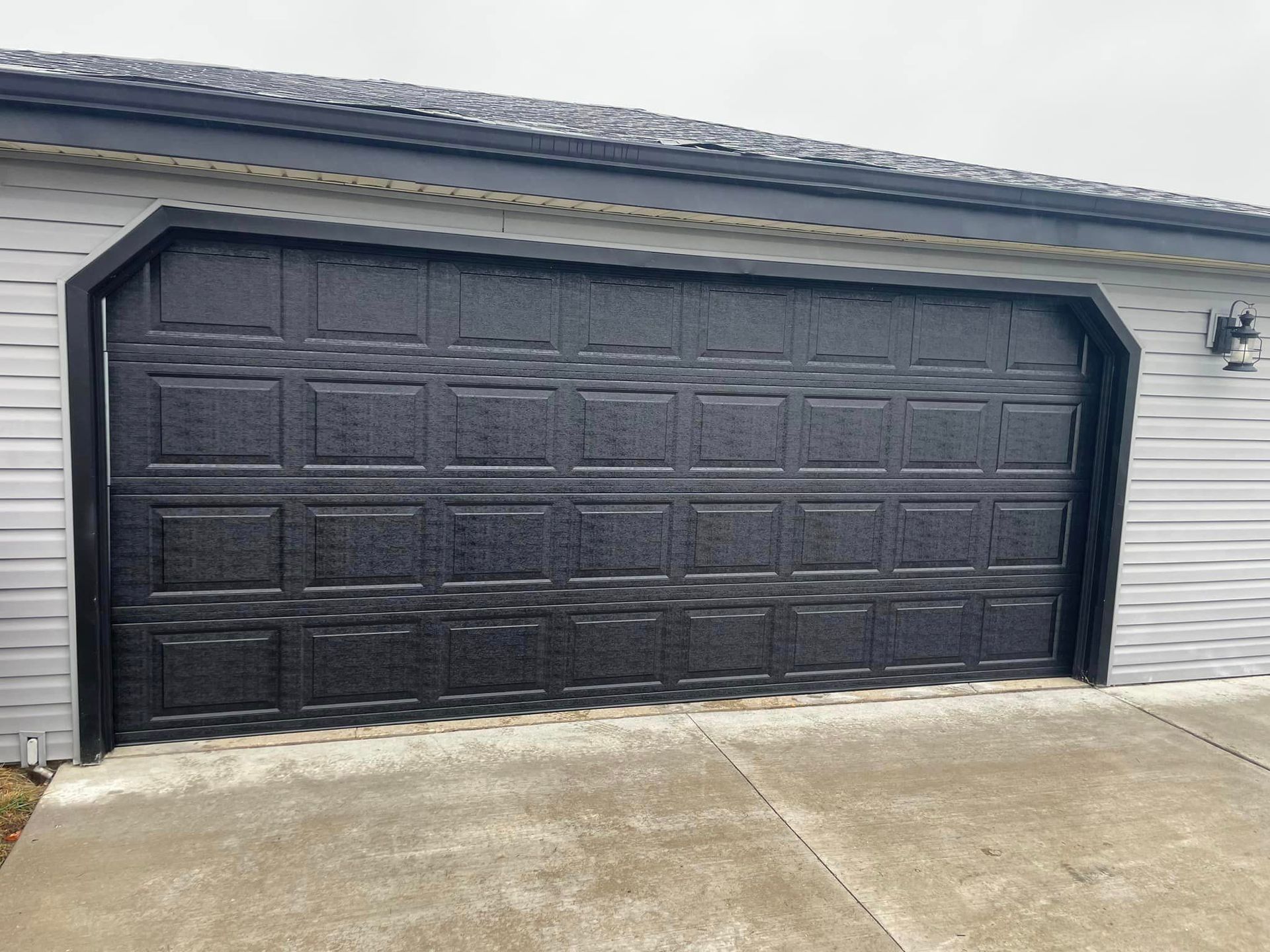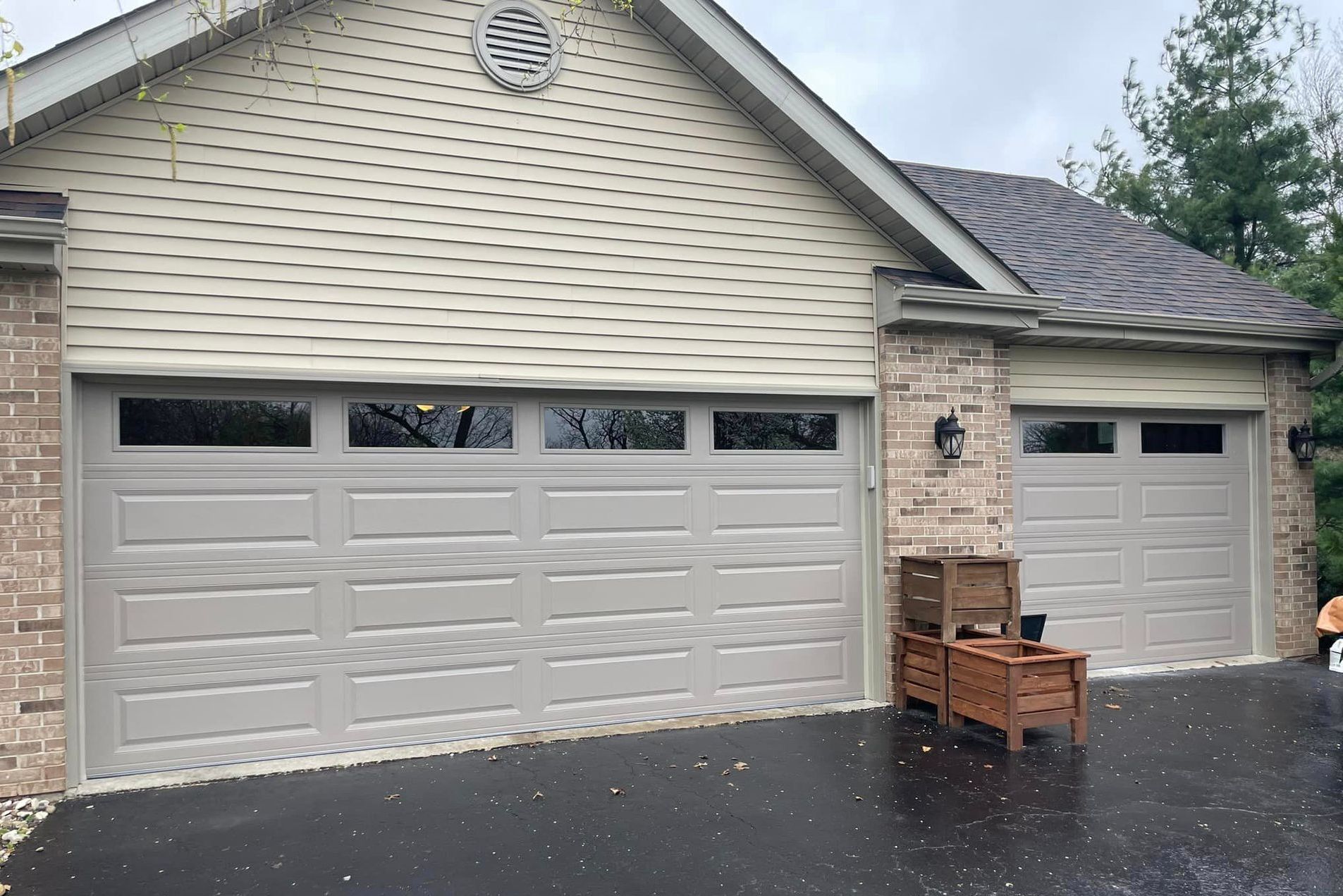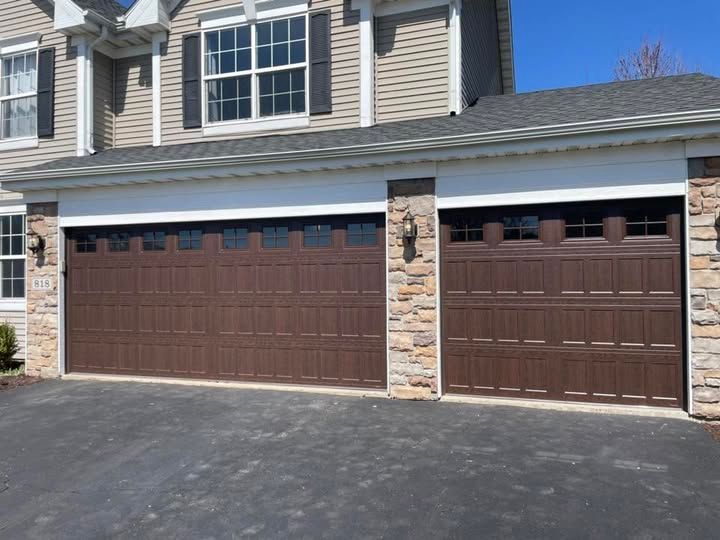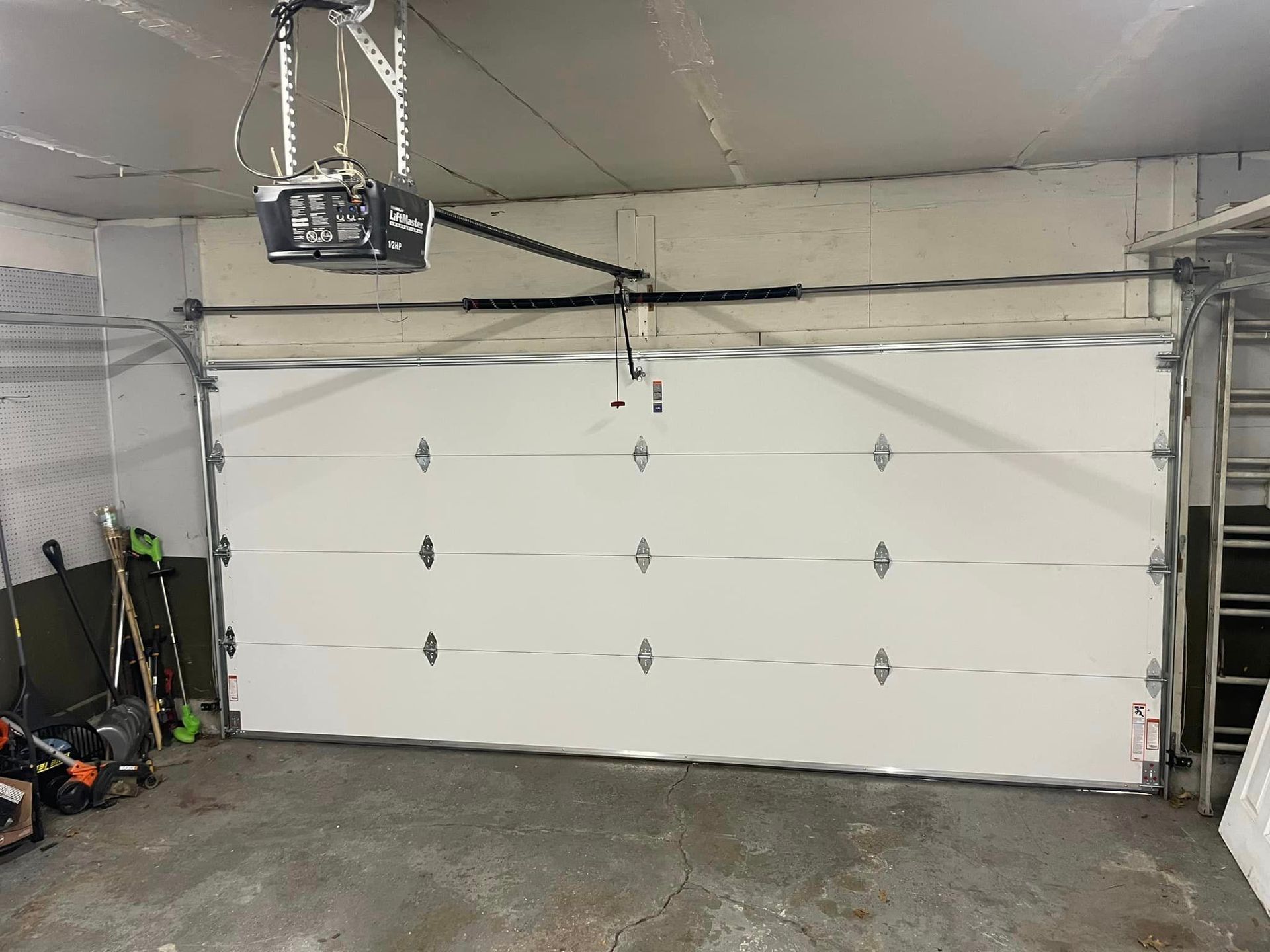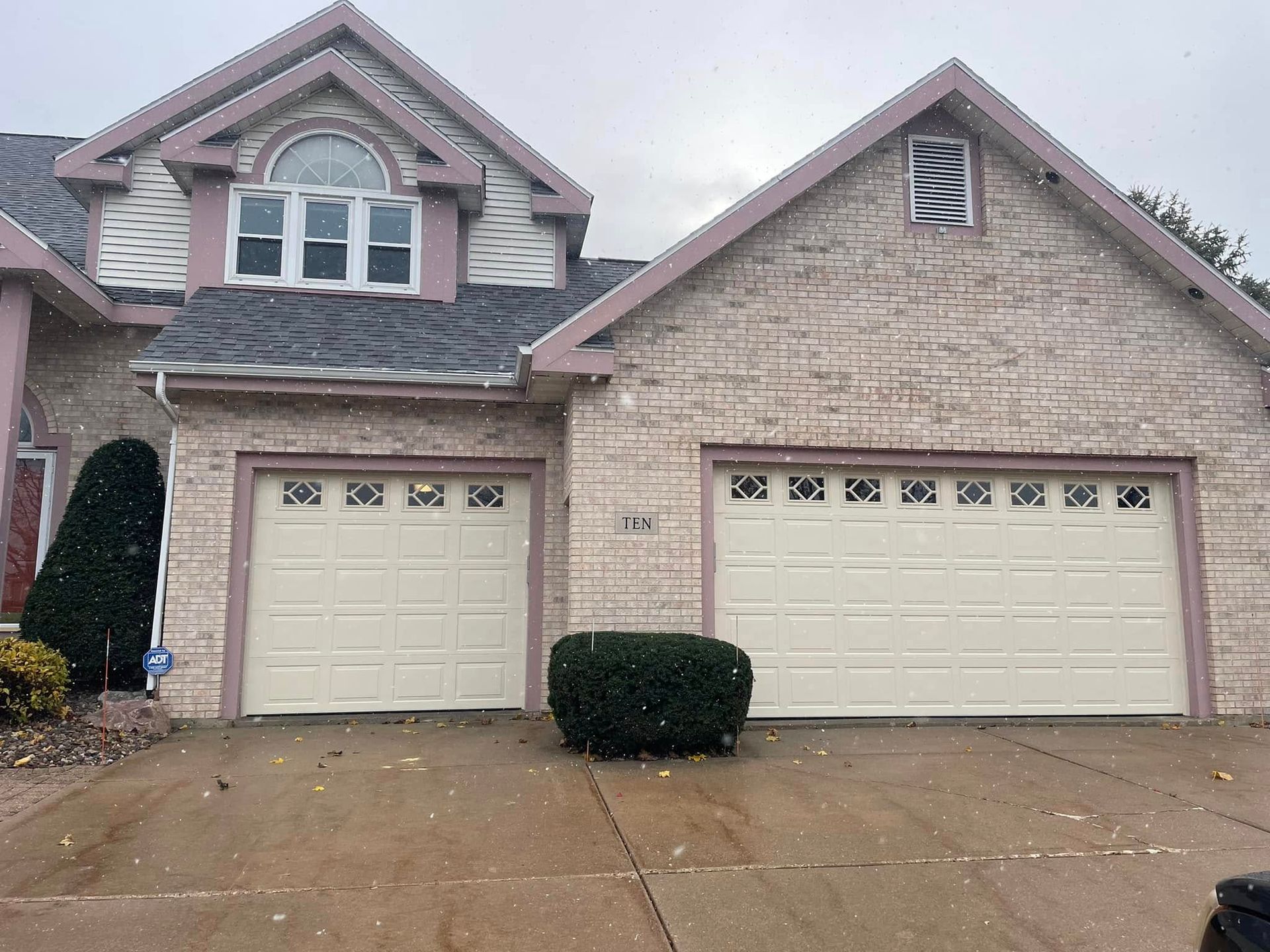Stop Settling for Noisy Doors: When Noise Signals a Bigger Problem

How to Tell When That Rattle, Squeak, or Bang Means Trouble
If your garage door makes more noise than your car, it’s trying to tell you something. Many South Beloit homeowners get used to squeaks, screeches, or rattles coming from their garage door — but those sounds aren’t normal. They’re early warning signs that something mechanical is wearing down or out of balance.
At Spring King Overhead Door Service, we know a little noise can lead to a big repair if ignored. Here’s how to tell the difference between harmless noise and a problem that needs attention now.
Squeaking or Grinding = Dry or Failing Rollers
A squeak or grinding noise usually means your rollers need lubrication — or replacement. Metal rollers without ball bearings often wear unevenly, creating friction that can damage your tracks.
Fix: A quick lubrication can help temporarily, but if you’re hearing grinding, the rollers or bearings may already be deteriorating. Replacing them with sealed nylon rollers will make your door quieter and extend its life.
Popping or Banging = Spring or Cable Tension Issues
When you hear a loud pop, bang, or sudden jolt, it’s often a sign of a spring or cable issue. The tension system that lifts your door carries hundreds of pounds of force. When parts weaken or misalign, they can snap suddenly — a major safety hazard.
Fix: Never attempt to adjust or replace torsion springs yourself. This job requires specialized tools and training. Call a professional technician immediately if your door becomes uneven or the noise intensifies.
Rattling or Vibration = Loose Hardware
If your door rattles as it moves, vibration may be shaking loose bolts, hinges, or brackets. Over time, that movement can cause metal fatigue or alignment issues.
Fix: Tighten visible fasteners, but if the noise persists, have your door professionally serviced. A full tune-up includes balancing the door, checking the tracks, and replacing worn hinge pins — preventing long-term damage.
Screeching or Whining = Misaligned Tracks or Motor Strain
A high-pitched whine or screech can indicate the tracks are out of alignment or the opener is straining. Cold Illinois weather, foundation shifts, or years of use can gradually pull your track out of square, causing the rollers to drag.
Fix: Don’t force the door or keep cycling it — that adds strain. A technician can realign the track, recalibrate the opener, and stop the motor from overworking itself.
Silence Is Golden (and Safe)
A properly serviced garage door should move smoothly and quietly. If it’s loud, vibrating, or jerking, those are your cues to act before a small issue turns into a full replacement.
Regular maintenance — lubrication, tightening, inspection, and spring balancing — keeps your system quiet, efficient, and safe all year round.
Don’t Ignore the Noise — Fix It with Spring King
A noisy garage door isn’t just an annoyance — it’s an early warning sign. Let Spring King Overhead Door Service inspect, tune, and restore your garage door so it runs like new again.
